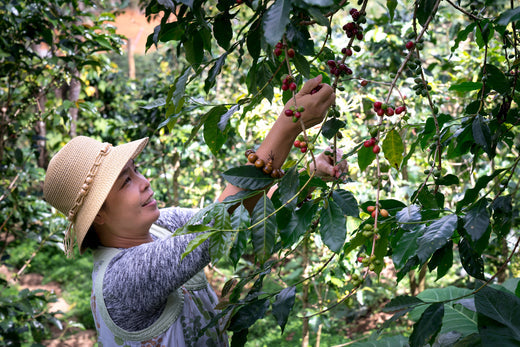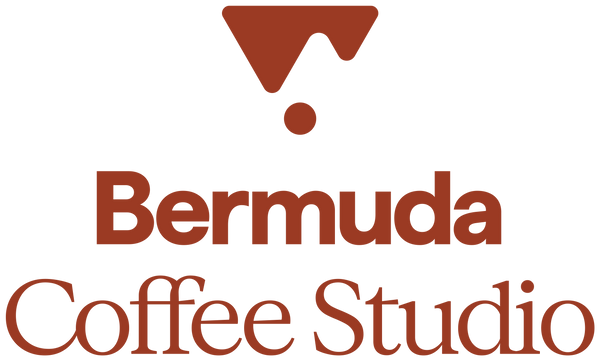
Specialty Coffee Trade
Share
Coffee is truly a global beverage that is enjoyed across many cultures. We have been drinking coffee for at least 500 years, but in the past few decades, coffee’s popularity has taken off and it is now renowned to be one of the worlds most traded commodities. A lot of coffee drinkers today demand a product that is carefully roasted, skillfully brewed and traceably sourced. So, what do coffee supply chain relationships look like and how are they regulated?
The coffee supply chain is sometimes thought to be the ‘First World’ buyer exploiting the ‘Third World’ producer but this idea only reflects a small minority of coffee trade. The reality is that most coffee is traded for ‘agreeable’ prices that are regulated or influenced by the following factors:
- Global Coffee Pricing
Like most other commodities, coffee pricing is influenced by global supply and demand. There is somewhat of a global minimum price on coffee, often referred to as the ‘C-price’, which is listed on the New York Stock Exchange. This commodity price is most relevant to mass produced ‘commodity coffee’ that is often produced and sold in bulk at markets and large retail chain stores, for consumers who view coffee as a quick and efficient way to get caffeine into their bloodstream. This view of coffee as a ‘caffeine-hit’ rather than an enjoyable drink, is a common perception for many consumers who are yet to realize the delight of the rich flavour and complexities of fresh specialty coffee.
- Specialty Coffee Demand
The increase in demand for specialty coffee in Australia, places growing importance on the specific flavour traits that coffee has to offer across a range of brewing methods. These consumer demands are driving importers and roasters alike to carefully source and roast a range of coffees that offer unique flavour profiles, that can only be attained using the best available supply from various producers. This shift towards specialty coffee, helps improve returns for coffee growers, as consumers are now more willing to pay a higher price for quality coffee.
- Sustainable Coffee Certification Schemes
There are various 3rd party coffee certification schemes that exist to support the sustainability of coffee producers and the environment in which they farm. The most recognizable of these is ‘Fair Trade Certified’. Fair Trade’s model is designed to work with cooperatives of coffee growers with a mission to support fair pricing, community development and environmental responsibility. Developed in the 1960s, ‘Fair Trade Certified’ has had a positive impact on the industry by protecting commodity coffee producers from issues of over-supply and unsustainable pricing. However, the criticism of the certification is that it does not provide incentive for producers to increase product quality and assumes that all coffee is the same regardless of how it is going to taste in the cup. As a result, the ‘Fair Trade Certified’ scheme doesn’t recognize the above-average premium prices, that are offered to many producers of specialty coffee and therefore it would be incorrect to assume that just because a certain coffee is not ‘Fair Trade Certified’ that it isn’t fairly traded.
- Trade Relationships
There are many stakeholders who play important roles in the coffee industry, offering unique value along the way. Growers, processors, exporters, importers and roasters all have a role to play before the coffee can be brewed and enjoyed by the customer. The link between the farm and the roaster is not always direct simply due to logistics and scale. Most specialty coffee roasters would stock beans that come from several different countries of origin, meaning that consolidation by an importer/merchant is necessary to obtain the highest quality at the best price. Likewise, for the farm, a point of consolidation is often required for their product to efficiently reach its destination. In this way, exporters of coffee can help to improve the farms return for their product.
So, what should you look for as a consumer?
If you’re wondering about the origins of your coffee beans and want to learn more, then it’s a great idea to ask your coffee roaster. Most roasters are proud advocates for their coffee beans and should have detailed information on the traceability of the beans they source. At Bermuda Coffee, we are constantly tasting the latest green bean arrivals from around the world to find our next single origin or the perfect base for a new blend. Our enthusiasm in scouting the globe for new coffee beans, stems from our passion as a consumer, and then as a roaster. This passion is embedded in the framework of a transparent and ethical sourcing process that is derived from our desire to actively engage in the advancement of select community causes and support social justice locally and abroad.
You can read more about our business ethics and sustainability practices on 'Beyond the Cup', or read up on the origin details of our coffee on the product pages.